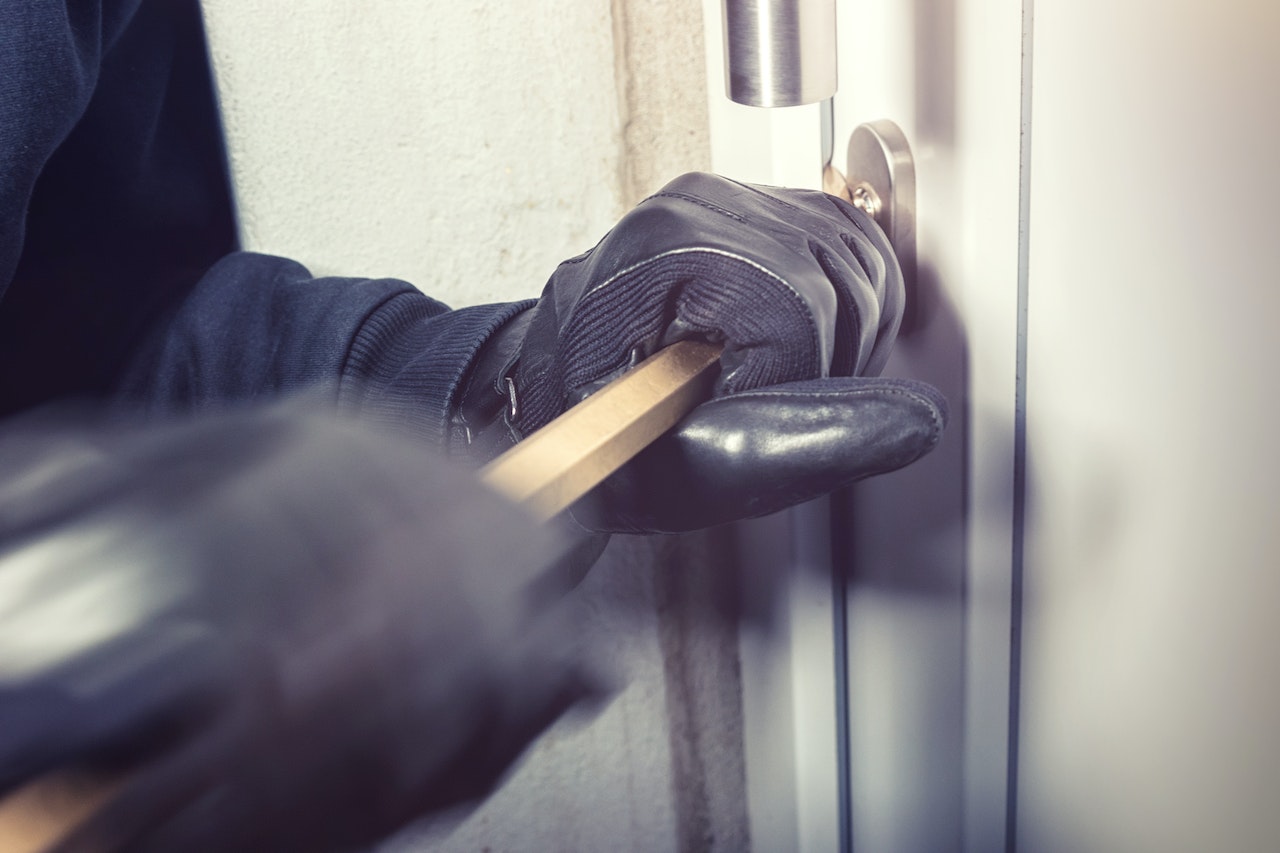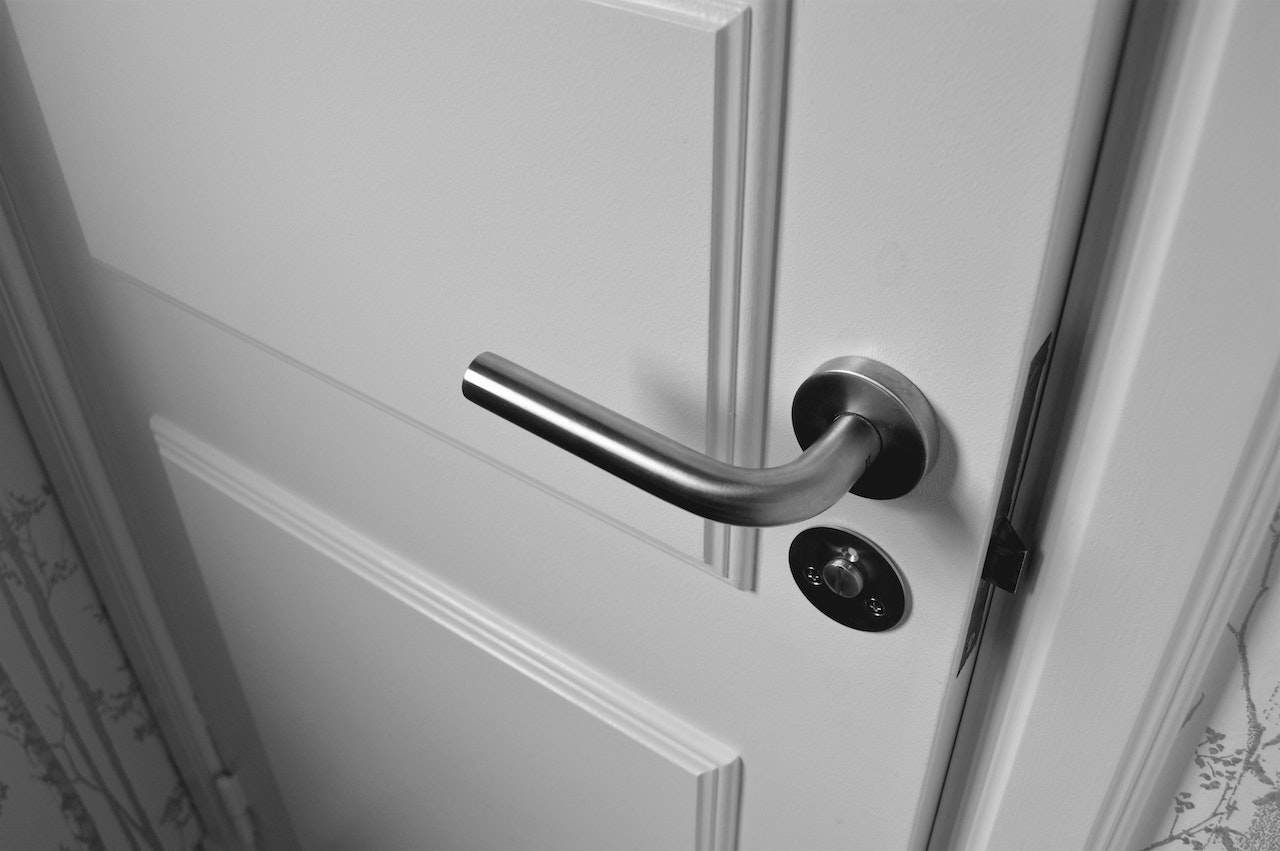How to Secure UPVC Doors: The Flying Doors Home Security Guide
When it comes to home security, one often-overlooked aspect is the protection of your doors. uPVC doors (unplasticised polyvinyl chloride) are popular for their durability and energy efficiency, but how can you make sure your doors are also safe and secure?

Understanding the importance of securing uPVC doors
Before diving into the specifics of how to secure uPVC doors, it's essential to understand why it matters. Your doors are the primary entry points to your home, making them a focal point for potential burglars.
High-quality uPVC doors from Flying Doors will provide your property with reliable, secure protection against intruders, and you can rest assured with our 10-year guarantee on all our doors.
Although sturdy, uPVC can sometimes be susceptible to forced entry if not adequately protected. By taking the necessary steps to secure your uPVC doors, you not only protect your property but also provide peace of mind for you and your family.
Assessing the vulnerabilities
Before you can secure your uPVC doors, it's crucial to assess their vulnerabilities. Each door may have unique weaknesses that need to be addressed. Here are some common areas to consider.
Weak locks
Many of your standard uPVC doors come with locks that may not provide sufficient security, and these locks can sometimes be bypassed by experienced burglars. That’s why all Flying Doors products are internally beaded and have a YALE high-security 7-point locking system to the master door that shoots bolts to the slave door.
Poorly fitted frames
If the door frame is poorly fitted, it can create gaps that allow intruders to pry the door open. We understand that for a door to be secure, it must have a sturdy frame, which is why all of our products come fitted with sturdy, steel-reinforced uPVC frames.
Glass panels
uPVC doors often feature glass panels, which can be shattered to gain access to the lock mechanism. All of our Flying Doors glass products are A-Rated double glazing, including toughened safety glass units with low-e glass.
Hinges
Inadequately secured hinges can be targeted by burglars, allowing them to remove the door from its frame.
Sliding doors
Standard uPVC sliding doors can be particularly vulnerable if the locking mechanism is not robust. But at Flying Doors, all of our door products include stable and durable locks.
Now that we understand the vulnerabilities, let's explore how to secure uPVC doors effectively.

How to secure uPVC doors
Securing uPVC doors involves a combination of hardware upgrades, reinforcement, and smart security practices. Follow these steps to enhance the security of your uPVC doors.
Upgrade the locks
The first line of defence for your uPVC doors is the lock. Consider upgrading to high-security locks, such as deadbolts or multipoint locking systems. These locks are much more challenging for burglars to manipulate.
Reinforce the door frame
Strengthen the door frame by using longer screws to secure it to the wall. This prevents the frame from being easily kicked in during a break-in attempt. Although reinforcement plates and strike plates can also be added for extra security, it’s useful to invest in a Flying Door product that is already steel-reinforced for your peace of mind.
Install a door viewer
A door viewer (peephole) allows you to see who is outside without opening the door. This is especially useful for verifying the identity of visitors before granting them access.
Consider security film
If your uPVC door has glass panels, apply security film to reinforce them, and this film makes it much more difficult to shatter the glass and gain access to the door's interior. Our Flying Door products are internally beaded and come equipped with toughened glass already installed.
Secure the hinges
Replace standard screws in the hinges with longer ones that go deep into the door frame. This prevents intruders from removing the door by removing the hinges.
Use window restrictors
For uPVC sliding doors or windows, install window restrictors. These limit how far the window or door can be opened, reducing the risk of forced entry.
Implement smart security
Consider installing a smart security system with door sensors and cameras. These systems can provide real-time alerts and allow you to monitor your doors remotely.
Reinforce the glass
If your uPVC door has a wide glass surface, consider replacing it with laminated or toughened glass. These types of glass are much more difficult to break.
Secure the letterbox
Letterboxes can be used by burglars to reach inside and manipulate locks. Use a letterbox cage or restrictor to prevent this from hindering your home’s security.
Lock the door at all times
One of the simplest yet most effective ways to secure your uPVC door is to ensure it is always locked when not in use. This basic habit can deter opportunistic burglars.

Types of uPVC door locking systems
Ultimately, the effectiveness of a uPVC door depends on the strength of the locking system, in addition to the features we have discussed such as glass reinforcements and window restrictors.
Multi-point locks
Multi-point locking systems are the most common and secure choice for uPVC doors. These systems feature multiple locking points along the door frame, engaging with a single turn of the key.
Typically, they include a combination of hooks, bolts, and rollers, ensuring that the door is securely anchored at several points, making it resistant to forced entry.
Cylinder locks
Cylinder locks, also known as Euro cylinder locks, are another popular option. They operate with a key or thumbturn and are usually found in the handle of the door.
Choosing a high-quality cylinder lock is essential, as low-quality ones can be vulnerable to picking or bumping. Anti-snap and anti-drill features are crucial for added security.
Shootbolt locks
Shootbolt locks are often used in conjunction with multi-point locking systems. These rods or bolts shoot out from the top and bottom of the door into specially designed keeps in the frame.
This additional reinforcement enhances security and prevents the door from being levered open.
Choosing the right door locking system for your property
When selecting a uPVC door locking system, it's crucial to consider factors such as the security level required, budget, and personal preferences.
High-security options with anti-snap, anti-drill, and anti-pick features are advisable for maximum protection. For even greater peace of mind, you can maximise your door security even further by consulting a professional locksmith or uPVC door specialist who can help you make an informed decision based on your specific needs.
Maintenance and regular checks
Securing your uPVC doors is not a one-time task. Regular maintenance and checks are essential to ensure continued security. Here's what you should do consistently to keep your doors as secure as possible
Lubricate locks and hinges
Regularly lubricate the locks and hinges to ensure they function smoothly. Sticky locks or hinges can be a sign of wear and tear.
Test the locks
Periodically test all locks and mechanisms to ensure they are working correctly. Replace any damaged components promptly.
Inspect the door frame
Check the door frame for any signs of damage or warping. If you notice any issues, address them immediately to maintain the door's security.
Review security measures
Regularly review your security measures and consider upgrades as needed. Stay informed about new security technologies and techniques to keep your home safe.
Secure uPVC doors with Flying Doors
Securing uPVC doors is a crucial aspect of home security that should not be overlooked.
Remember that security is an ongoing process, and regular maintenance and checks are vital to ensure your uPVC doors remain secure. With these measures in place, you can enjoy the peace of mind that comes with knowing your home is well-protected.
If you’re thinking about upgrading your home with a more secure door system, invest in quality, reliable and the most popular front doors from Flying Doors. Use our ‘customise your own’ tool to create your ideal door, or get in touch with us for more door security advice.